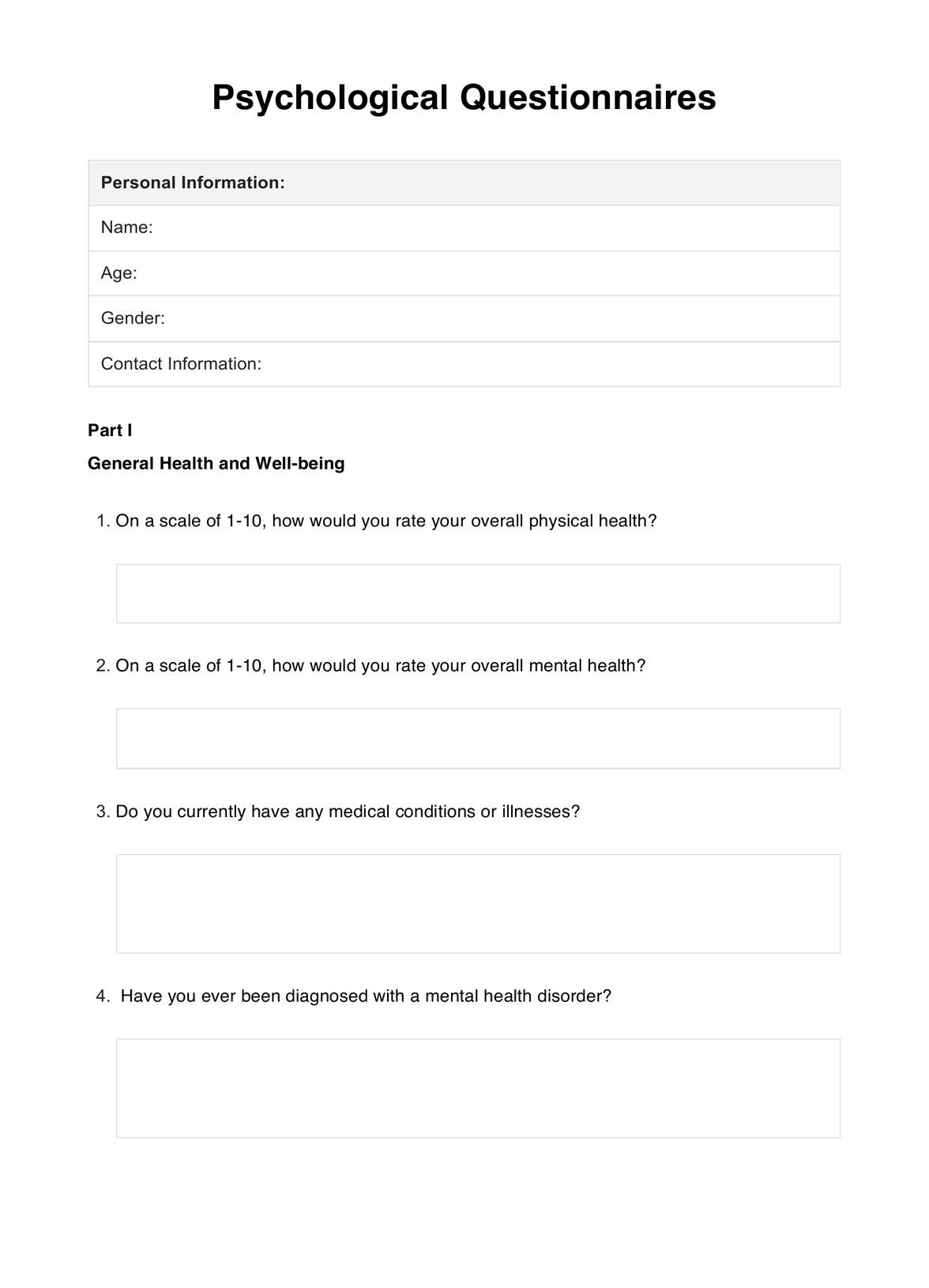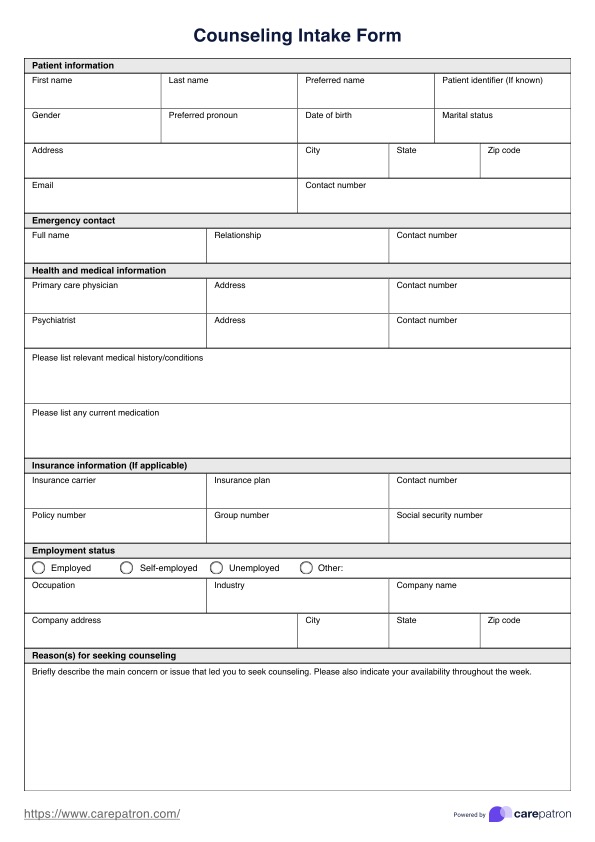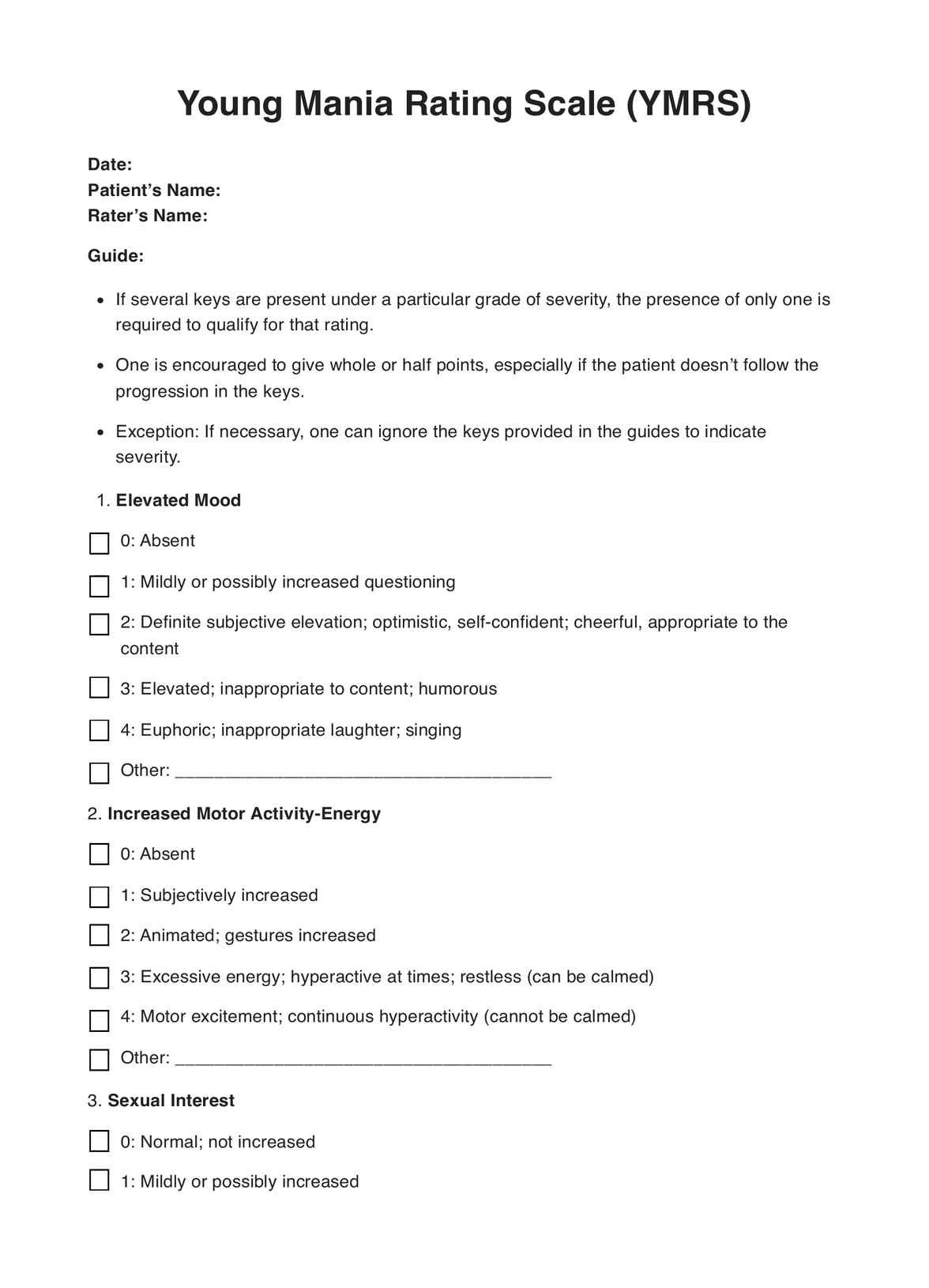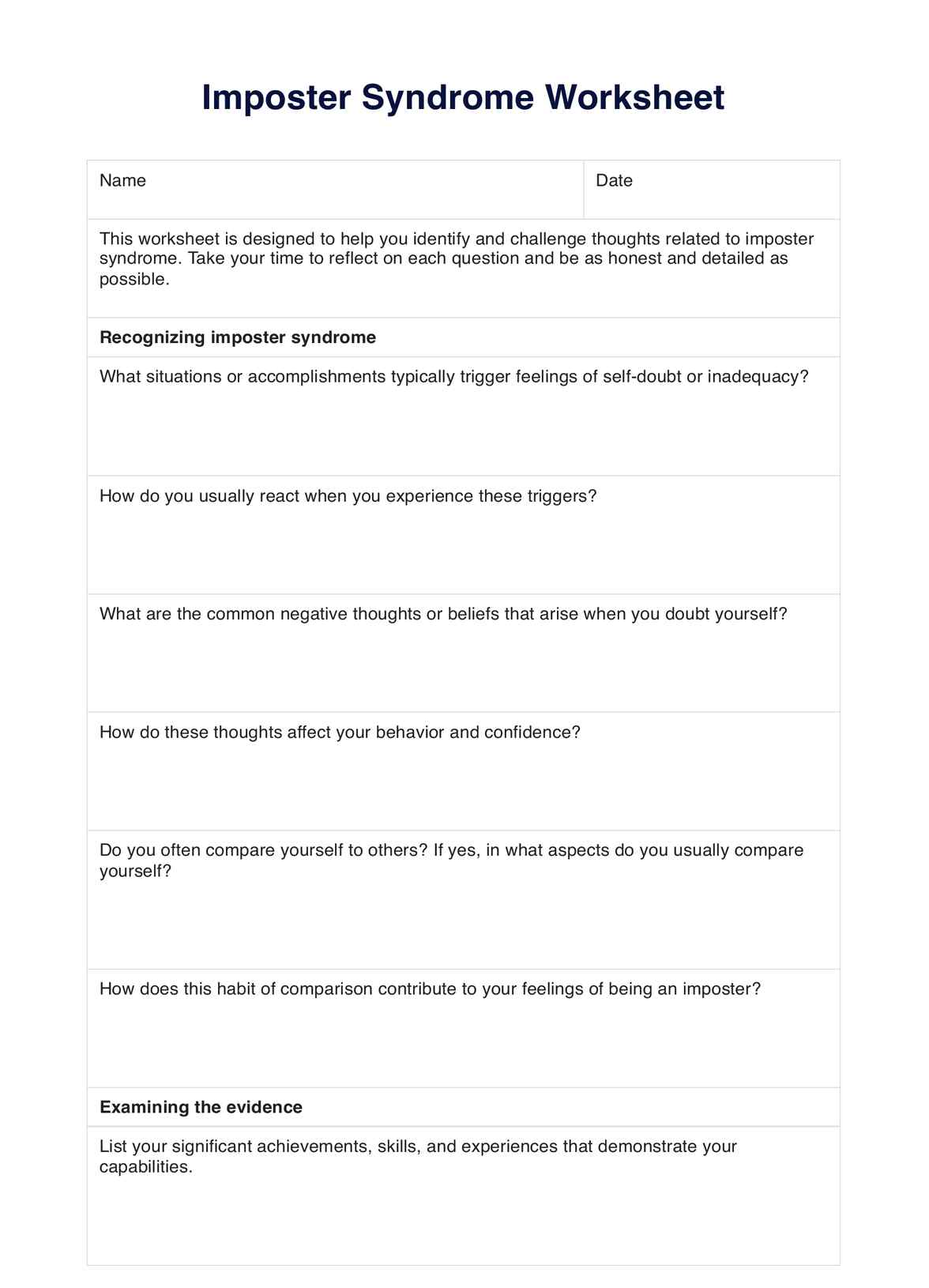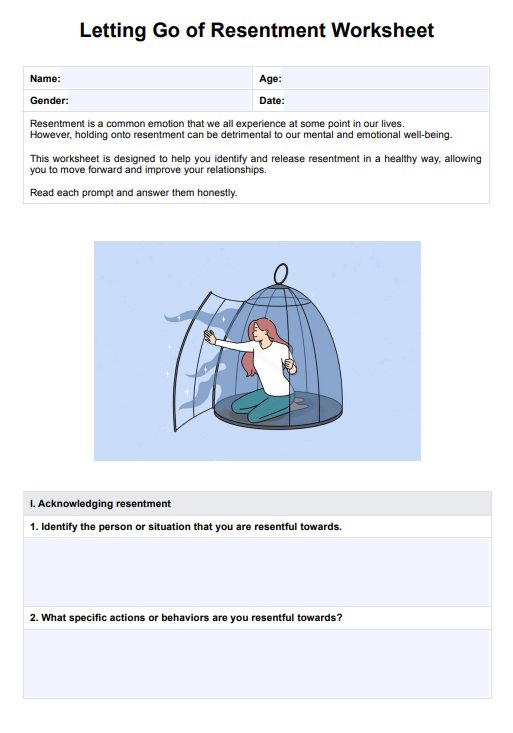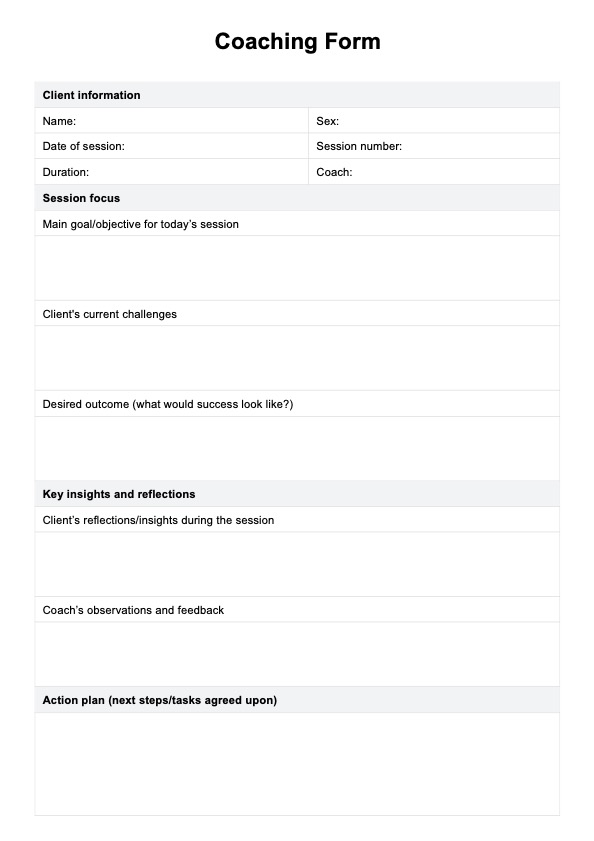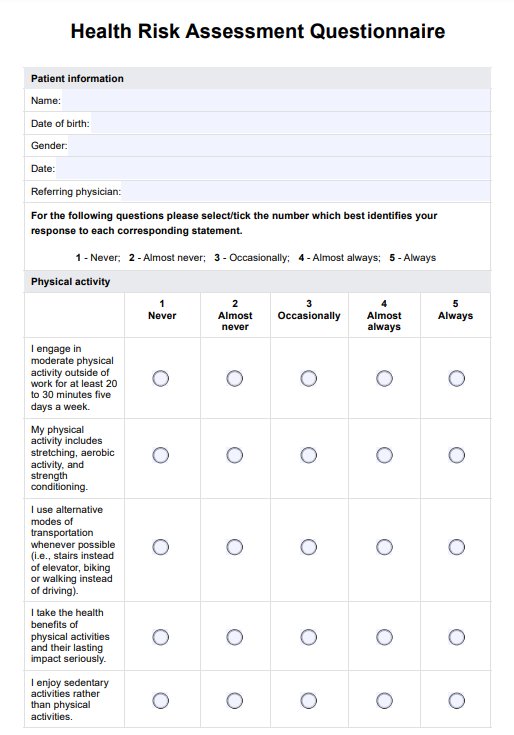Behavioral Health Treatment Plan
Explore effective mental health treatment plans with our free PDF template, which is ideal for mental health professionals seeking structured recovery paths.


What is a Behavioral Health Treatment Plan?
A Behavioral Health Treatment Plan is a comprehensive document designed to outline the specifics of a client's mental health treatment journey. It serves as a roadmap for both the client and the treatment team, detailing the client's presenting problems, goals, interventions, and strategies for addressing those problems.
The treatment plan is for the client seeking behavioral health services. It outlines the course of treatment that will be implemented to address the client's mental health needs. The client may be an individual, a couple, or a family, depending on the nature of the presenting problem and the scope of treatment required. The treatment plan is tailored to the specific circumstances and needs of the client in order to promote their well-being and recovery.
Behavioral Health Treatment Plan Template
Behavioral Health Treatment Plan Example
Who is the treatment plan for?
A behavioral health treatment plan is an essential tool tailored for a diverse spectrum of individuals facing various mental health challenges. At its core, this plan serves those grappling with conditions that range from mild anxiety and depression to more complex and severe disorders such as bipolar disorder, schizophrenia, and substance abuse issues. It caters to adults, children, and adolescents, acknowledging the unique psychological needs and developmental stages of each age group.
The versatility of these plans means they are not confined to any single demographic or condition. Rather, they are meticulously individualized, taking into account each client's personal history, current circumstances, and specific mental health needs. This bespoke approach ensures that the treatment is relevant and maximally effective for the individual concerned. Professionals who utilize these treatment plans span a broad spectrum of the healthcare field. They include psychologists, psychiatrists, social workers, and other mental health professionals who are equipped to address a wide array of mental health issues.
These plans are instrumental in settings ranging from private practices and outpatient clinics to inpatient facilities and community health centers. Moreover, treatment plans extend their reach to individuals facing situational stressors and life transitions that may precipitate or exacerbate mental health conditions. This includes those undergoing significant life changes, such as divorce, grief, or job loss, indicating the plan's role in mental illness that is not only curative but also preventative and supportive.
Our printable Behavioral Health Treatment Plan stands as a cornerstone of effective mental health care in private practice, offering a structured, personalized path toward healing and recovery for anyone navigating the complexities of mental health issues. By ensuring that the treatment is closely aligned with the individual's specific needs and conditions, these plans are pivotal in facilitating meaningful, lasting progress in mental health and well-being.
Benefits of using a Behavioral Health Treatment Plan
Here are some of the benefits of using a Behavioral Health Treatment Plan:
Structured approach to care
Our free Behavioral Health Treatment Plan provides a clear, organized framework for addressing mental health issues, ensuring systematic and coherent care. This structured approach helps map out the therapy process, making it easier for professionals to follow and clients to understand their journey toward wellness.
Improved patient outcomes
Setting specific, measurable goals within a treatment plan facilitates targeted interventions that are more likely to result in meaningful improvements in the client's mental health. This focus on goal-oriented therapy contributes to more effective and lasting patient outcomes.
Enhanced communication
Treatment plans serve as a vital communication tool between the client and the healthcare provider. Laying out objectives, strategies, and progress in a structured format ensures both parties are aligned and informed about treatment options, fostering a stronger therapeutic relationship.
Increased client engagement
Involving clients in the treatment planning empowers them, increasing their motivation and engagement with the therapeutic process. This collaborative approach encourages clients to actively participate in their recovery actively, enhancing their commitment to treatment.
Efficient monitoring and adjustment
Regular treatment plan reviews allow for ongoing monitoring of the patient's progress and the flexibility to adjust strategies as needed. This adaptability ensures that the treatment program remains effective and responsive to the client’s evolving needs.
Commonly asked questions
Focus on creating clear, measurable goals that directly address the client's specific needs and consider incorporating a variety of therapeutic approaches tailored to those needs.
Examples include plans focusing on cognitive behavioral therapy for anxiety, motivational interviewing for substance use disorders, or family therapy for interpersonal issues.
Carepatron simplifies the process with templates and customizable fields, allowing mental health professionals to easily draft, save, and update treatment plans, all within a secure platform.

.jpg)
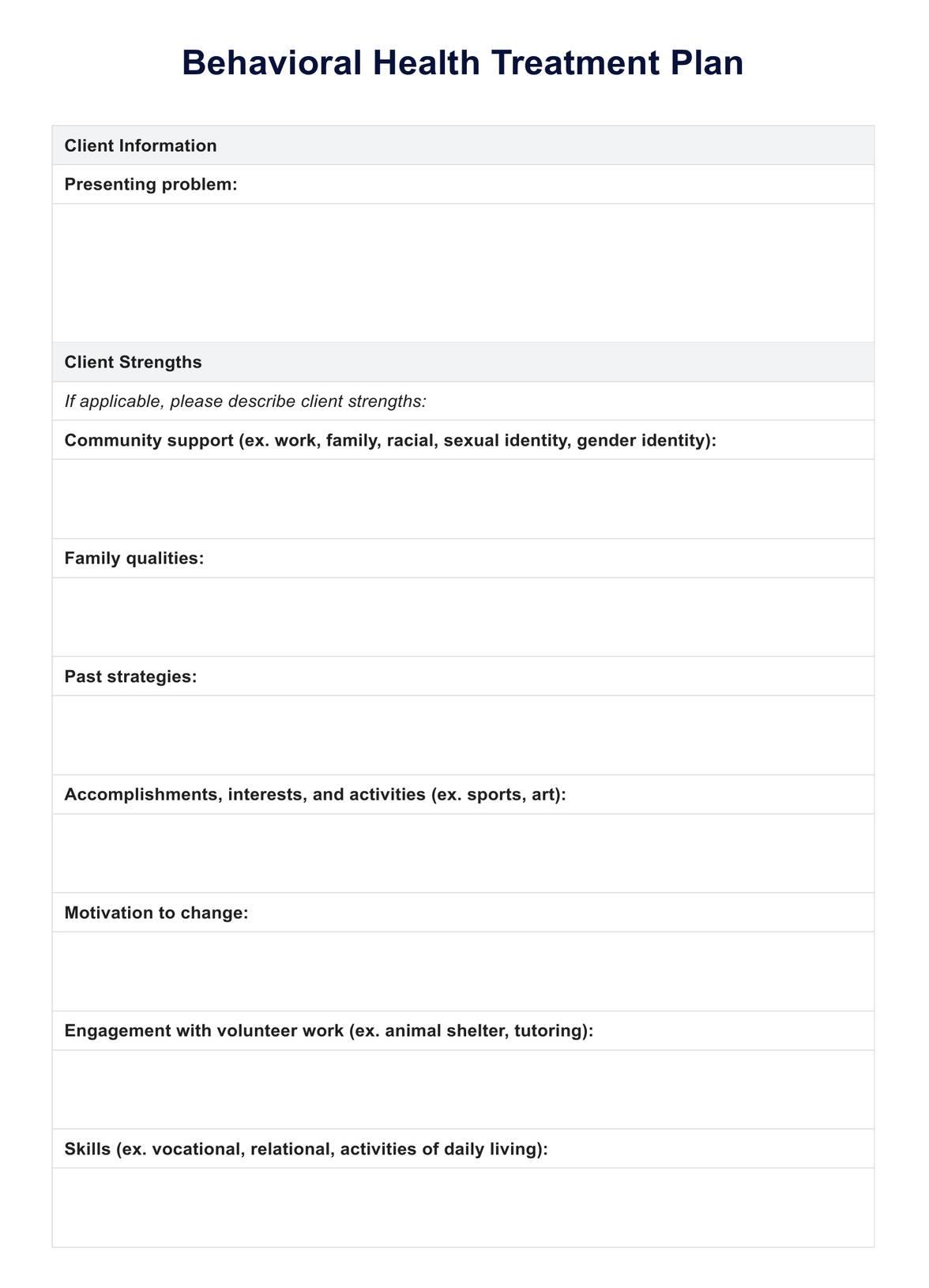
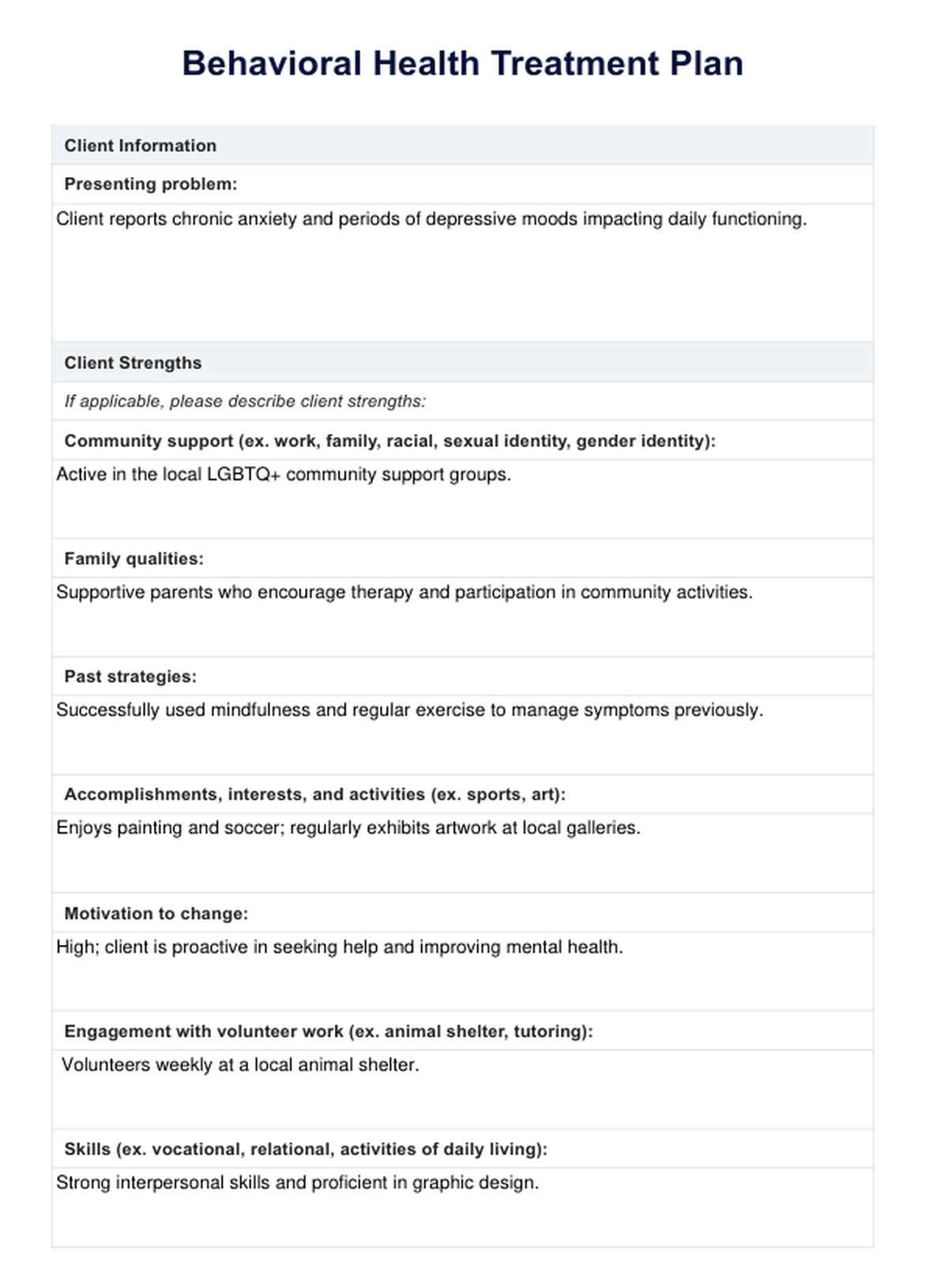

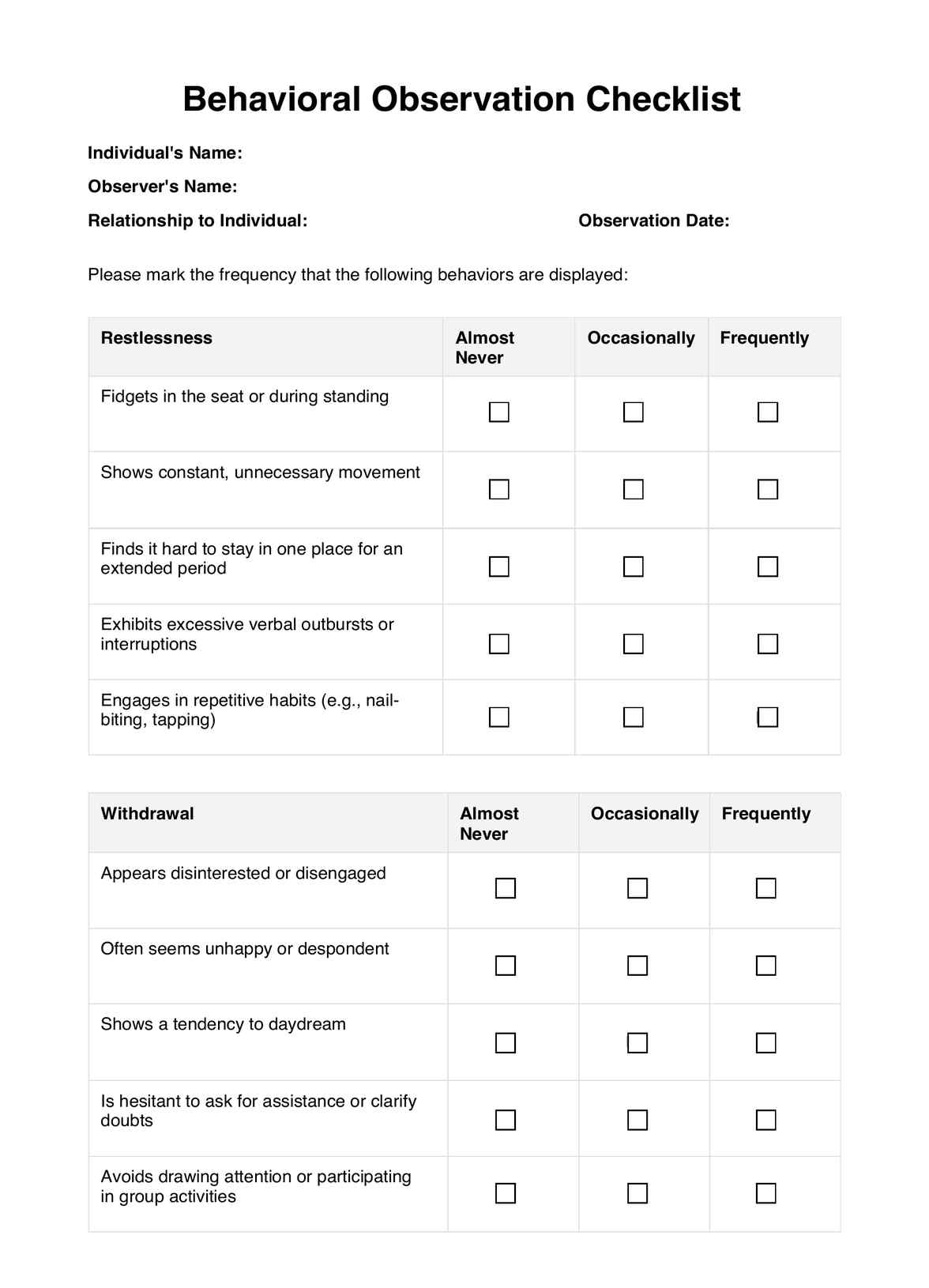
















-template.jpg)



















































































